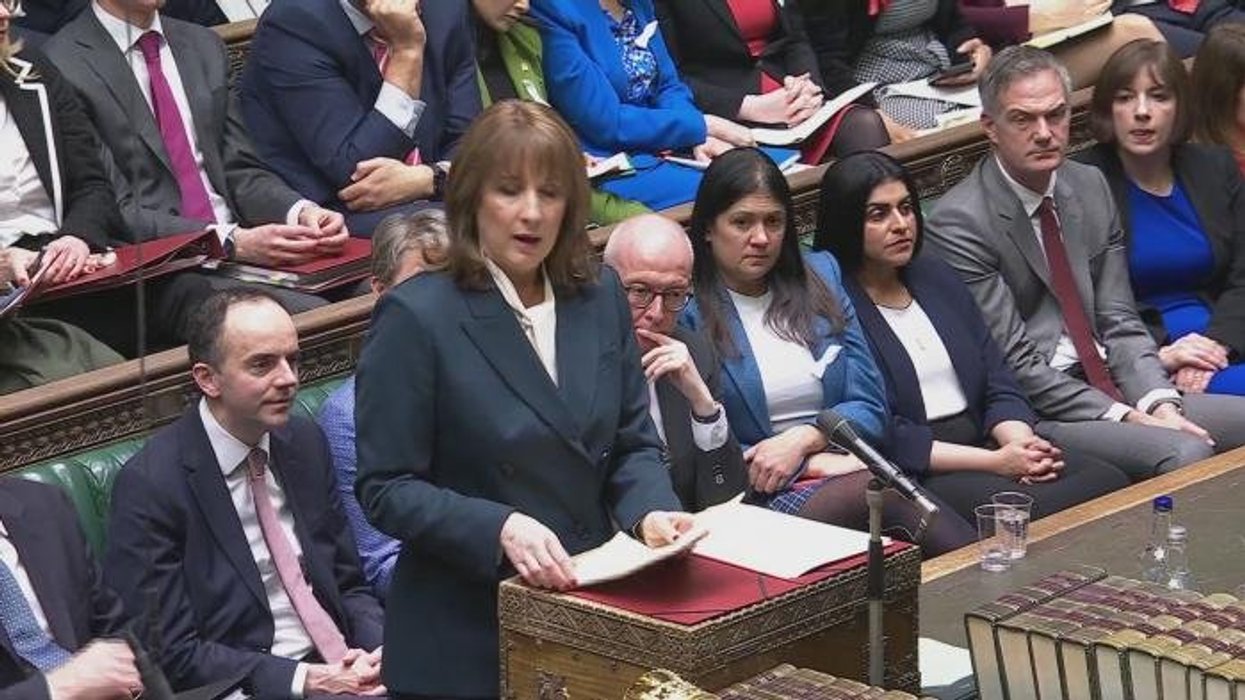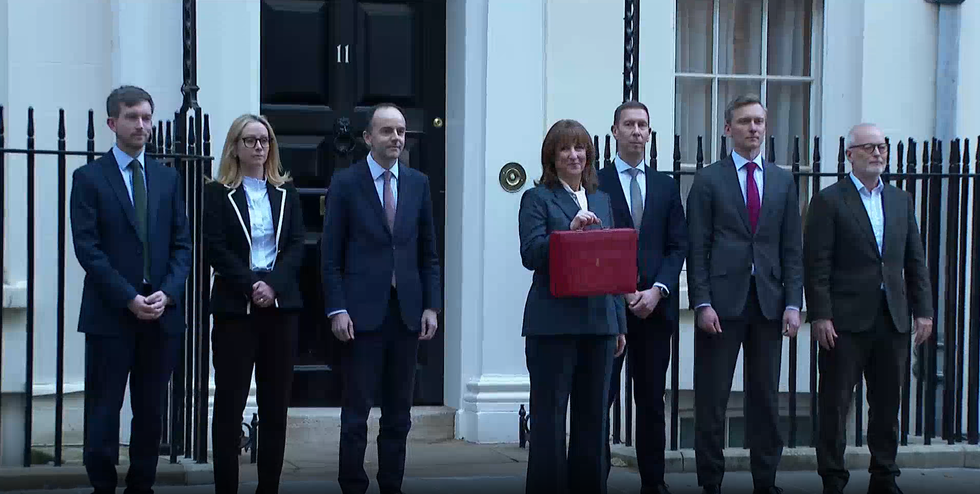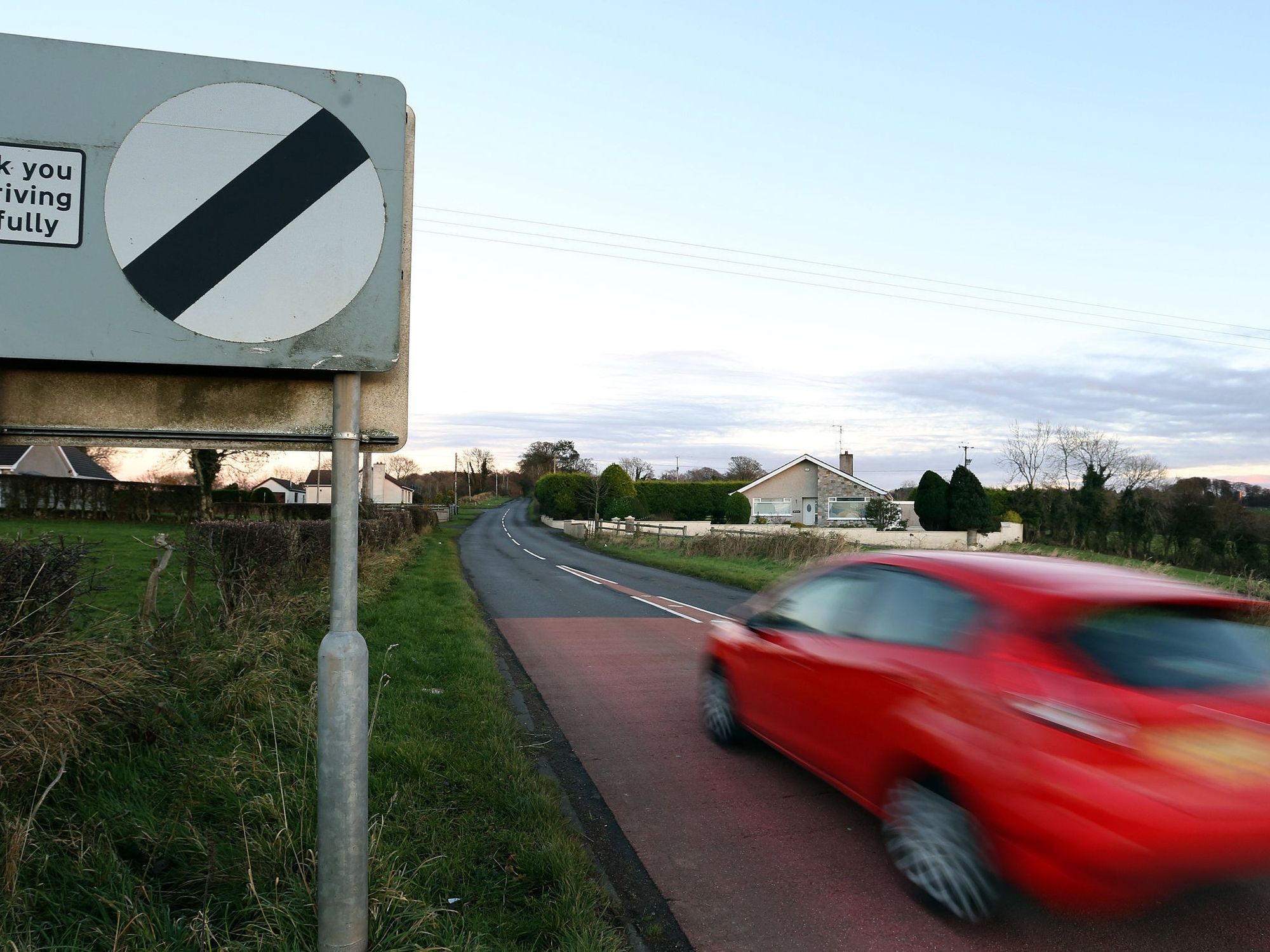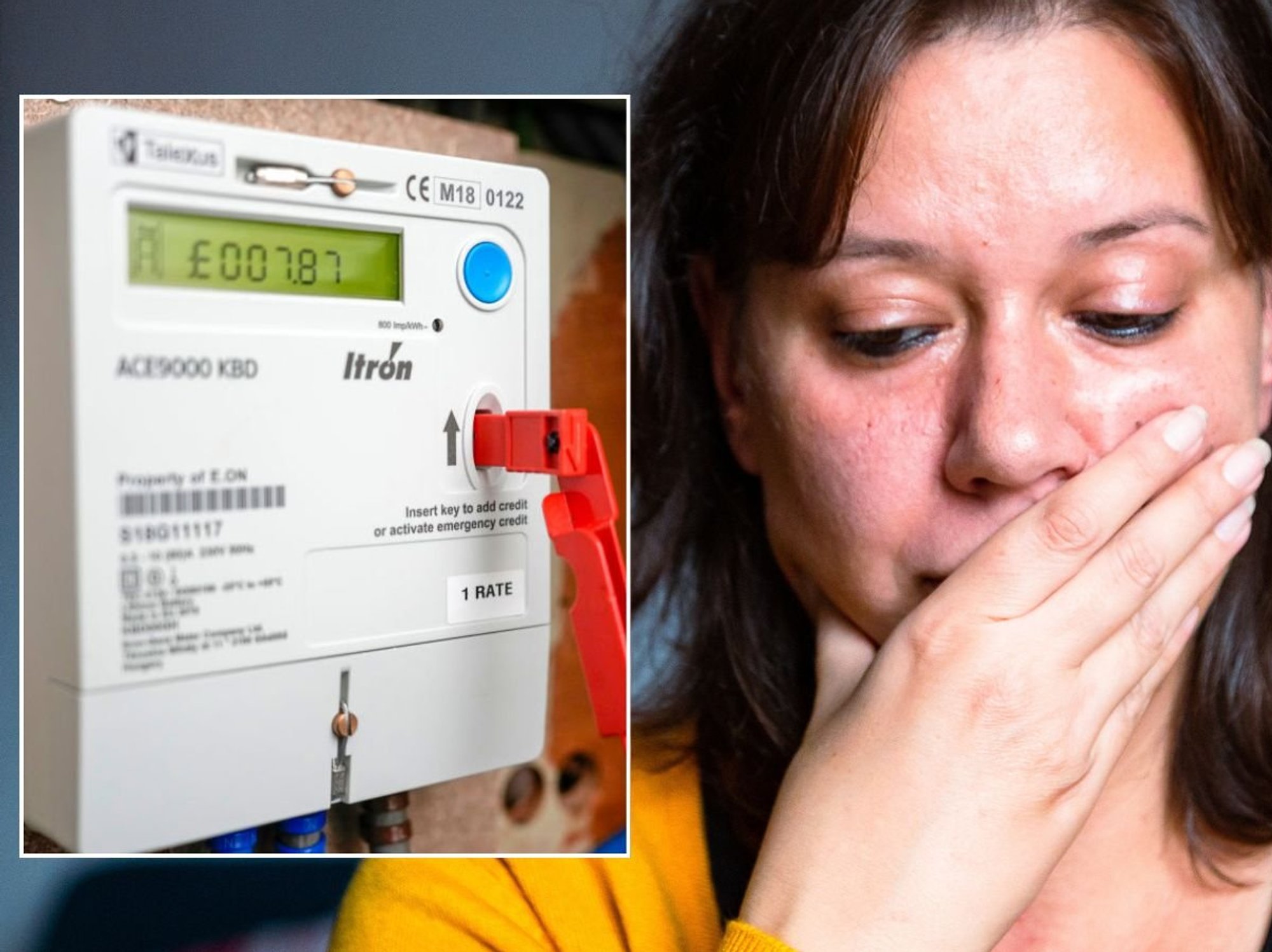Pay-per-mile car taxes confirmed for millions of drivers as Rachel Reeves unveils major changes

WATCH: Chancellor confirms electric vehicles will pay 3p per mile in new road tax
|GB NEWS

The Chancellor confirmed the changes in the Autumn Budget this afternoon
Don't Miss
Most Read
Latest
Chancellor Rachel Reeves is expected to finally confirm pay-per-mile car tax changes after weeks of confusing U-turns from Labour, in a blow to millions of drivers.
The changes come ahead of the Chancellor's speech in the Commons after a disastrous rollout saw documents from the Office for Budget Responsibility leaked ahead of her speech.
The OBR documents have confirmed that "other tax changes" will raise £11billion by 2029-2030 including a new "mileage-based charge on electric and plug-in hybrid cars" from April 2028.
This will be around half the fuel duty rate paid by drivers of petrol cars, with the expectation that it will raise £1.4billion.
TRENDING
Stories
Videos
Your Say
It states that the introduction of the pay-per-mile scheme will offset around one-quarter of the 0.6 per cent drop in GDP in revenue set to be lost from fuel duty by 2050.
Speaking in the Commons, Chancellor Rachel Reeves confirmed that she is "asking everyone to make a contribution" if they use the roads.
Reacting to the new taxes, John Cassidy, Sales Managing Director at Close Brothers Motor Finance, comments: “A pay-by-mile scheme for electric vehicles risks increasing costs for many drivers, particularly those who rely on their cars for higher annual mileage.
"With energy bills rising and public charging becoming more expensive, motorists will fear that EV ownership could end up being significantly more expensive than traditional ownership.
 A mileage-based charge will be introduced for electric and plug-in hybrid drivers from 2028 | PA/GETTY
A mileage-based charge will be introduced for electric and plug-in hybrid drivers from 2028 | PA/GETTYA Government spokesperson previously told GB News that it wanted to introduce a "fairer" system of motoring taxation for all electric vehicle drivers, especially given the scheme of fuel duty on petrol and diesel car owners.
Last week, the Transport Secretary told the Commons that the Government had no plans to introduce a "national pay-per-mile scheme".
She added that the Government was "firmly on the side of drivers" when questioned about the impact of a potential pay-per-mile scheme on rural motorists.
However, sources close to the Transport Secretary claimed that she "misspoke", with the intention of ruling out a "national road pricing system".
LATEST DEVELOPMENTS
- Rachel Reeves 'highly likely' to axe fuel duty freeze in Budget as petrol and diesel drivers face misery
- Polestar unveils revolutionary EV charger breakthrough that can save drivers £1,000 a year - 'Game changer!'
- Local authorities tipped to tackle e-bike misuse as 'unsafe' vehicles pose major safety risks to Britons
Asif Ghafoor, CEO of charge point operator Be.EV, also lamented the decision for a "mileage-based charging scheme" to be introduced, saying it was "a new hurdle to adoption" for millions of drivers.
He said: "This is a market that already suffers from a real gap between 'haves' and 'have nots', particularly in terms of how those without driveways are reliant on public charging while those with driveways benefit from cheap at-home off-peak rates.
"In the long term, of course, the Treasury's loss of fuel duty receipts will have to be addressed - but the Budget can and should also be used as an opportunity to favourably rebalance the incentives that are on the table right now."
The OBR documents state that the charge will equal three pence per mile for EVs and 1.5p for plug-in hybrids. These rates will increase annually with CPI.

Rachel Reeves steps out of No11 with red box ahead of the Budget
| GB NewsThe average EV owner in 2028-2029, driving 8,500 miles, will be charged around £255, roughly the equivalent of fuel duty tax paid per mile by petrol and diesel drivers.
Simon Williams, RAC head of policy, said it was likely that the Government was easing the hit on electric vehicle drivers by investing £1.5billion in the Electric Car Grant and public charging stations.
He noted that the "devil would be in the details" regarding the pay-per-mile car tax changes, although he highlighted that the Government likely sees fuel duty as "one lever" that will keep revenue coming in.










